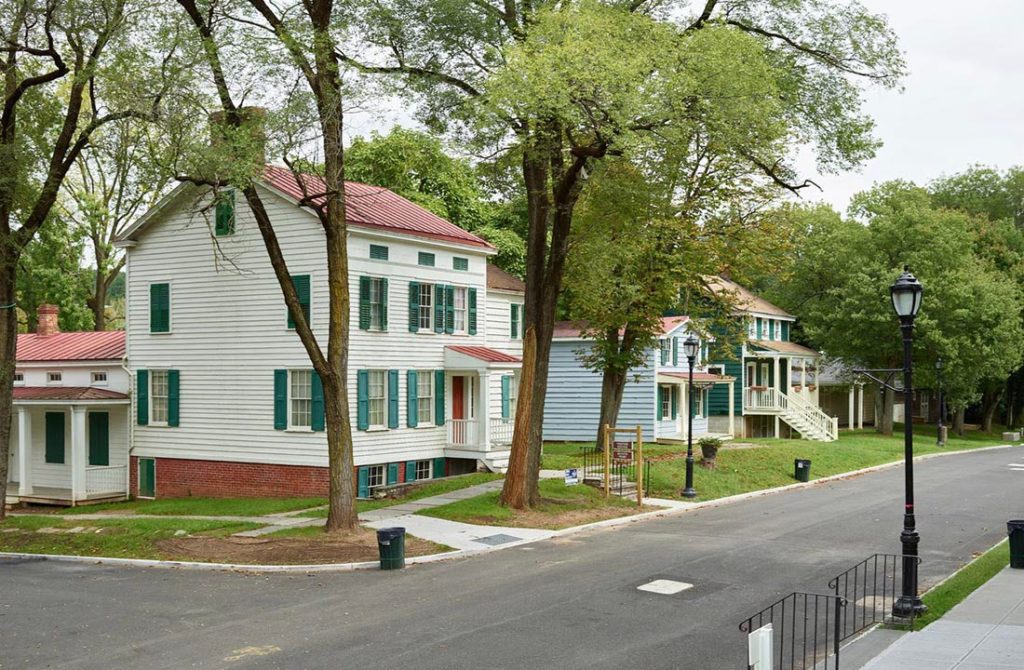The Town of Richmond, established in the 1690s, became the seat of Staten Island’s county government in 1728. After Staten Island was incorporated into the City of New York in 1898, its government offices were moved to the town of St. George, and Richmond gradually became a quiet residential area.
Although no longer the governmental center of Staten Island, Richmond Town soon became the center of the local preservation movement. During the 1930s, volunteers from the community and the Staten Island Historical Society shared a vision of what Richmond Town’s collection of unused buildings, dating back hundreds of years, could become.
Today, Historic Richmond Town’s 100 acres include 28 buildings dating from the late 17th to the early 20th centuries. Half stand on their original locations in Richmond Town, and others were moved to the site throughout the 20th century. The buildings exemplify a variety of architectural styles and create a physical journey through time, allowing visitors to explore the evolution of Staten Island through its buildings.
During the spring and summer months, the village comes alive with the daily trades and customs of old Richmond Town as period re-enactors fill its farmhouses, trade shops, and the county courthouse. In a city known for its skyscrapers, it preserves an historically-scaled past for future generations.


Historic Richmond Town is a joint project of the Staten Island Historical Society and the City of New York through the Department of Cultural Affairs, and is a member of the Historic House Trust.
If you would like to donate to Historic Richmond Town directly, please click here.




